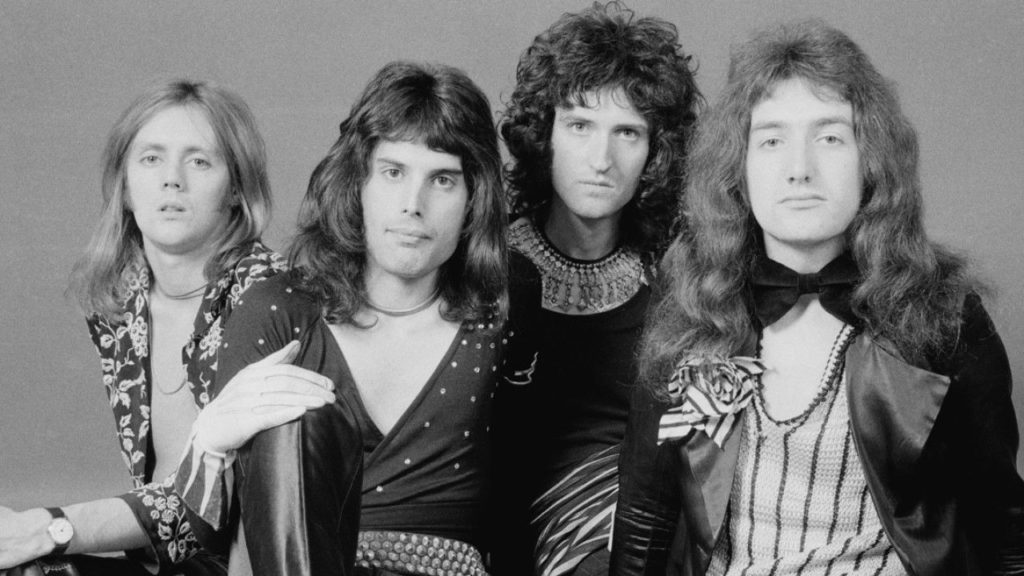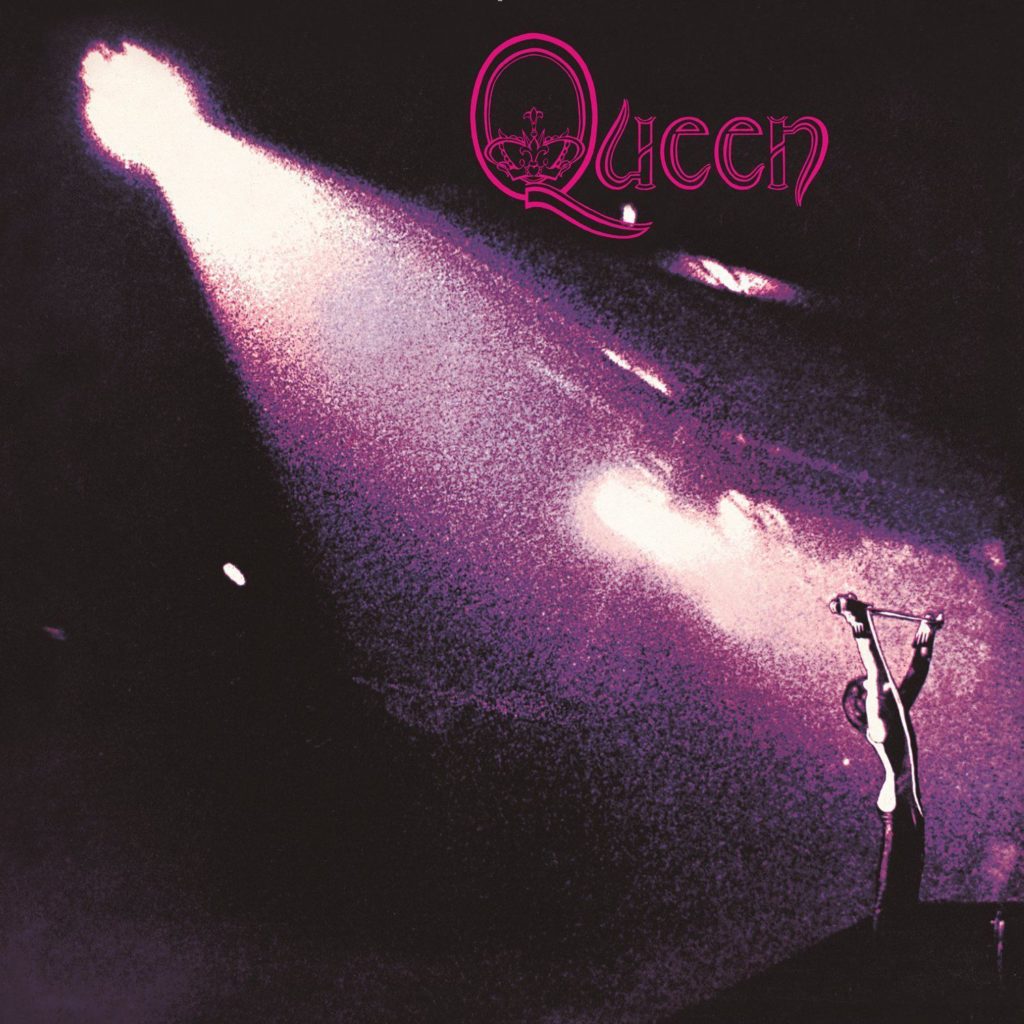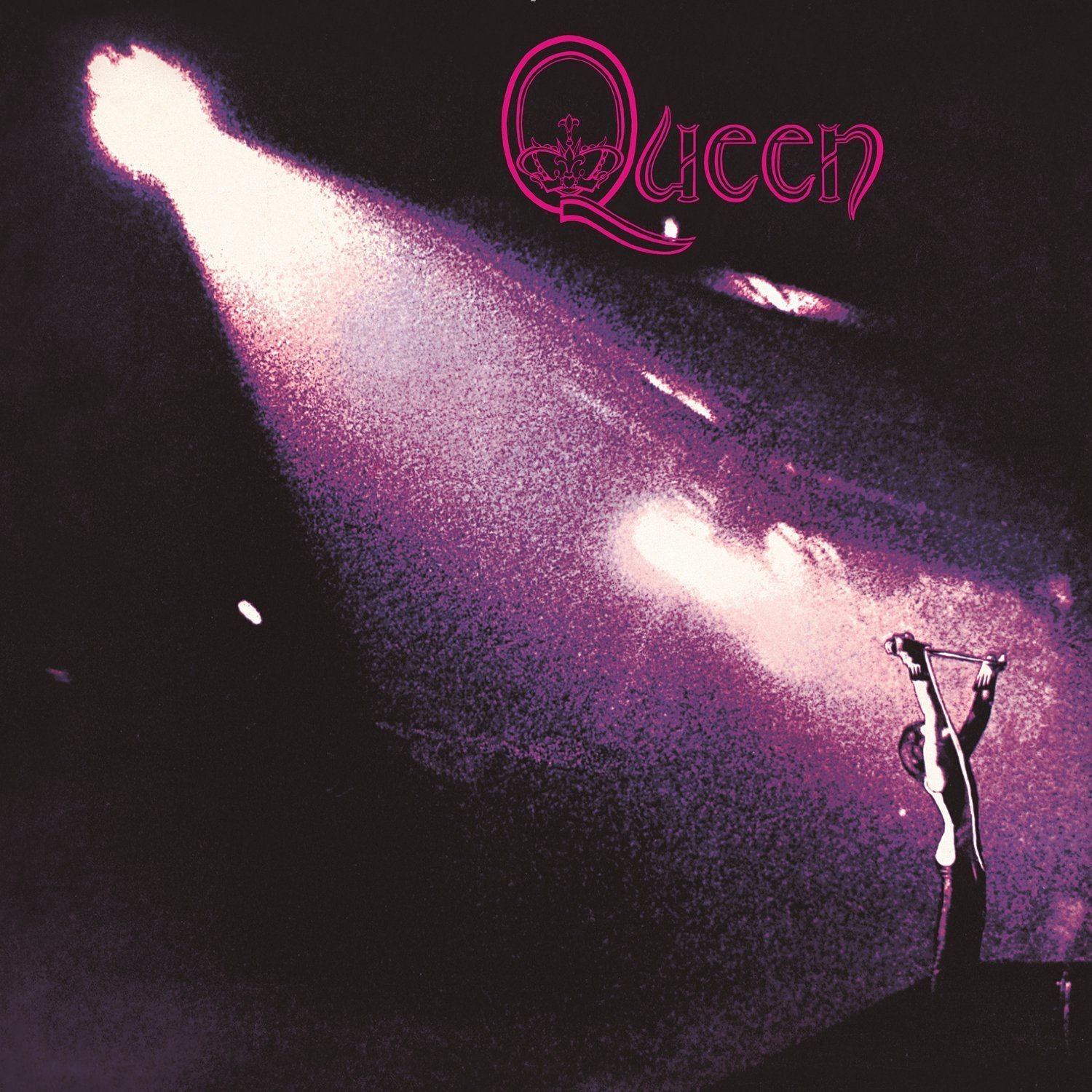I had previously mentioned that Queen was my “artist of the year” a couple of years ago, but I only gave the band cursory attention. Since collecting the band’s albums on reissued CD recently I have been listening to Queen a lot over the last few years, and as a result I now feel better able to go a bit more in depth.

Queen started out as a rather standard early 70s rock outfit. Guitarist Brian May and drummer Roger Taylor were in a band (Smile) when Freddie joined on vocals, and then later John Deacon on bass. With the lineup settled they recorded a demo, which landed them a record deal but things wouldn’t quite work out and the end result is uneven, and representative not just of the band at the time, but also where rock music was. Queen’s debut album doesn’t quite capture the band at their best (as would be demonstrated a few albums later) but places them firmly in the crossroads of hard rock, progressive rock and glam rock.

“Keep Yourself Alive” is probably the best track on the album, leading it off and acting as their debut single. Certainly a staple of their live set for quite a while, and for good reason, it feels like the most “Queen” track on the album.
The thing is, when you enter into this album after being familiar with Queen’s later work, this one (and the next) just don’t quite seem to be the same band. Yes, there is a bit of flourish and studio trickery in there, but not nearly as much as one might expect.
Rather notable is the fantasy theme in the band’s early work. Rhye is a setting the Freddie Mercury created, and two (possibly three) songs on the album are set within. First there is the obvious “Seven Seas Of Rhye” which closes the album, and is actually half finished. The completed tune would appear on Queen II. Then there is “My Fairy King” a complete fantasy (I mean, the opening lyrics describe horses born with wings) and it took me a few listens to understand this. A possible third song set in Rhye would be “Great King Rat” which is on side one just before “My Fairy King” and that can’t be much of a coincidence.
Also on side one is a song that was written before Mercury joined the band, was sung by somebody else (the bass player at the time). Mercury reportedly attempted to sing the song in the same style for the album and their live set at the time.
Side two opens with “Liar” which is another track that fits in better with some of Queen’s later works, but in general this album just isn’t as cohesive as even the second album. Some of the songs are held over from before Queen, and then the amount of studio time the band had was limited and patchwork. That being said, it’s still a decent album, particularly for a debut album by a rock band in the early 70s.
Some of the songs, like “Modern Times Rock And Roll” are about as memorable as “Leavin’ Again (Again)” (go look it up). What saves the more mundane (used as a relative term here) numbers on the album, Queen, is the fact the band has enough wherewithal to at least put in a little something into the finished product that wasn’t quite ordinary and the fact that it wasn’t just their lead singer who was a dynamic presence.
“Modern Times Rock And Roll” is a very typical Roger Taylor track, many of his songs deal with the subjects of rock and roll or having a good time. This provides an interesting counter to the grand themes Brian May and Freddie Mercury would tackle with their songs. I do wish there were more takes of Mercury singing some of Taylor’s numbers.
While Freddie Mercury was the lead singer, he didn’t sing lead on everything, established here on their first album. He would share vocal duties on “Keep Yourself Alive” but did the bulk of the vocal chores, and with “Modern Times Rock And Roll” Roger Taylor sang.
Queen (the album) came out in 1973 and captures the band as they begin to find their sound. Some would argue that sound evolved and changed over time, the same band that would record Night At The Opera would also go on to record Hot Space and Innuendo, all sounding rather different. What separates these first couple of albums is many of the songs could almost be written and recorded by just about any other early 70s rock band. That said, if you are only familiar with Queen from their radio hits and perhaps one or two albums, it is well worth the time to explore the band’s catalog, and chronologically.

